
The approval is the first in more than a decade for an idiopathic pulmonary fibrosis treatment.

The approval is the first in more than a decade for an idiopathic pulmonary fibrosis treatment.
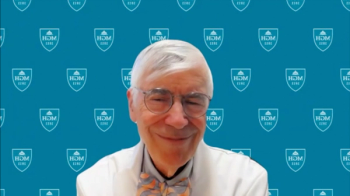
Rilzabrutinib (Wayrilz; Sanofi) may improve immune thrombocytopenia (ITP) outcomes, enable early intervention, and enhance patient quality of life.
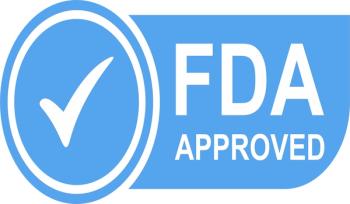
Roflumilast cream 0.05% gains FDA approval for young children, offering a safe, effective treatment for mild to moderate atopic dermatitis.

FDA approvals since the last Skin of Color Update expand topical and biologic options for various dermatological conditions, benefiting patients with skin of color.

The FDA has approved a second generic version of oral mifepristone, used to terminate pregnancy, after determining it is identical to the branded drug.

The approval of remibrutinib for patients with chronic spontaneous urticaria was supported by data from the phase 3 REMIX-1 and REMIX-2 clinical trials.

Raludotatug deruxtecan (R-DXd) earned FDA breakthrough designation for CDH6-expressing platinum-resistant ovarian cancers after bevacizumab (Avastin; Genentech) treatment.


The approval of paltusotine (Palsonify; Crinetics) marks the first for a once-daily, oral therapy to treat acromegaly.

FDA approved the monotherapy for estrogen receptor (ER)–positive and HER2-negative metastatic breast cancer.

Leucovorin is under FDA review to expand treatment for children with cerebral folate deficiency, which has been assciated with autism.
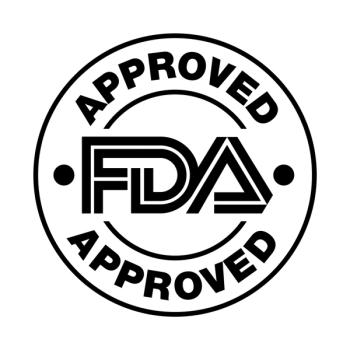
The approval allows all patients 12 years and older to use pembrolizumab and berahyaluronidase alfa-pmph for subcutaneous injection for solid tumor indications approved for intravenous pembrolizumab.
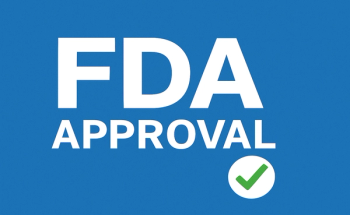
Ruxolitinib cream received an expanded approval to treat patients as young as 2 years old with non-immunocompromised mild to severe atopic dermatitis.

From respiratory conditions to rare diseases and beyond, here are 5 groundbreaking FDA approvals from last month.

FDA expands selumetinib approval to younger children with NF1-related tumors.

A new FDA-approved blood test for Alzheimer disease could transform diagnosis and treatment accessibility, according to this conversation with Howard Fillit, MD, and Anthony “Nino” Sireci, MD, MSc.

The FDA has approved rilzabrutinib (Wayrilz; Sanofi) as a groundbreaking treatment for immune thrombocytopenia (ITP), enhancing patient outcomes and quality of life.

The FDA has approved an updated COVID-19 booster while limiting access to high-risk individuals, amid ongoing debates on vaccine safety and efficacy.

In the final clip, James D. Chalmers, MBChB, PhD, notes that while the FDA approval of brensocatib is a milestone, questions remain on optimal patient selection, long-term benefits, and further targeting inflammation.

Evolocumab is now indicated for adults who don’t have a prior cardiovascular disease diagnosis.

Brensocatib, the first FDA-approved dipeptidyl peptidase 1 (DPP1) inhibitor for non–cystic fibrosis bronchiectasis, may have broader potential for other neutrophil-driven conditions, according to James D. Chalmers, MBChB, PhD.

James Chalmers, MBChB, PhD, highlights the reassuring safety and tolerability profile of brensocatib in patients with non–cystic fibrosis bronchiectasis.
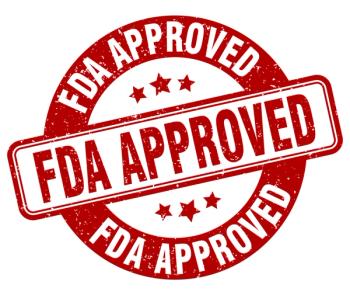
The approval makes donidalorsen the only treatment in the US for hereditary angioedema that is an RNA-targeted prophylactic.

James D. Chalmers, MBChB, PhD, explains that the ASPEN trial findings show that brensocatib reduces exacerbations, slows lung function decline at higher doses, and offers clinicians a long-awaited evidence-based treatment option.

Today, the FDA issued a complete response letter (CRL) for vatiquinone (PTC Therapeutics), delaying its potential approval as a treatment for Friedreich ataxia amid efficacy concerns.

The FDA approved zopapogene imadenovec, the first therapy for recurrent respiratory papillomatosis, providing an option beyond repeated surgeries to manage the rare condition.

This approval brings the total to 4 of medications approved to treat fibromyalgia; in addition to cyclobenzaprine HCl sublingual tablets (TNX-102 SL; Tonmya; Tonix Pharmaceuticals), there are pregabalin (Lyrica; Viatris), duloxetine (Cymbalta; Eli Lilly), and milnacipran (Savella; AbbVie).

Approval was based on part 1 of the ESSENCE trial, with part 2 results expected in 2029.

Brensocatib (Brinsupri; Insmed) gains FDA approval as the first treatment for bronchiectasis, offering hope to patients with the chronic lung disease.

Christina Poh, MD, of City of Hope National Medical Center, highlights the benefit of tafasitamab in improving progression-free survival for heavily pretreated patients with relapsed or refractory (R/R) follicular lymphoma.